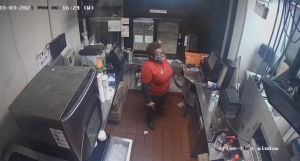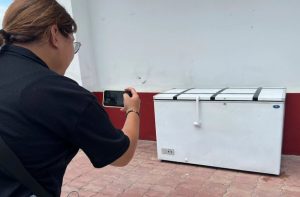A flood-hit riverside restaurant in Thailand has become an unlikely dining hotspot after fun-loving foodies began flocking to its water-logged deck to eat amid the lapping tide.
Now, instead of empty chairs and vacant tables, the Chaopraya Antique Café is as full as ever, offering an experience the canny owner calls “hot-pot surfing.”
If you like your food washed down with plenty of water, this is the place for you.
Shortly after the water tops the parapet, the first diners arrive. Before long, the deck is crammed with carefree customers happily tucking in as if dining in a deluge is the norm.
Also Read: World’s 50 best restaurants: Denmark’s Noma tops list, an Indian cuisine delights
The wait staff -– some clad in rubber boots — step gingerly through the swirl that quickly rises to more than 50 centimeters (20 inches).
The restaurant, in Nonthaburi near Bangkok, opened in February in a riverside location that perfectly complements its antique architecture and décor.
But a recent severe tropical storm and heavy monsoon rains combined to raise the river’s water level. Add in the tides and the result has been daily inundation.
Also Read: Will you be able to eat the ‘Bahubali Pani Puri’? | Watch
Coming straight after a monthslong coronavirus shutdown, it could have spelled disaster. Instead -– boosted by publicity in the Thai media — it’s now so popular that customers need to make reservations.
“This is a great atmosphere. During this flood crisis this has became the restaurant’s signature attraction. So I wanted to challenge myself and try out this new experience,” 24-year-old Siripoj Wai-inta said as he munched his food with the water creeping up his shins.
The owner has dubbed the experience “hot-pot surfing.” When a passenger boat motors past you find out why. The delighted scramble to avoid a soaking from the wave is the moment everyone waits for, and with one passing every 15 minutes, no one goes home disappointed.
It’s TV presenter Titiporn Jutimanon’s first restaurant venture. He says he was worried what would happen when the floods came.
“It turns out the customers have a great reaction. They are happy. We can see the atmosphere of customers enjoying the experience of eating in the water. So a crisis has turned into an opportunity. It encourages us to keep the restaurant open and keep customers happy.”
Best of all, he says, it means he can keep his staff happy by keeping them employed. So, even amid harsh economic times, the only thing that needs a bailout is the restaurant itself.






